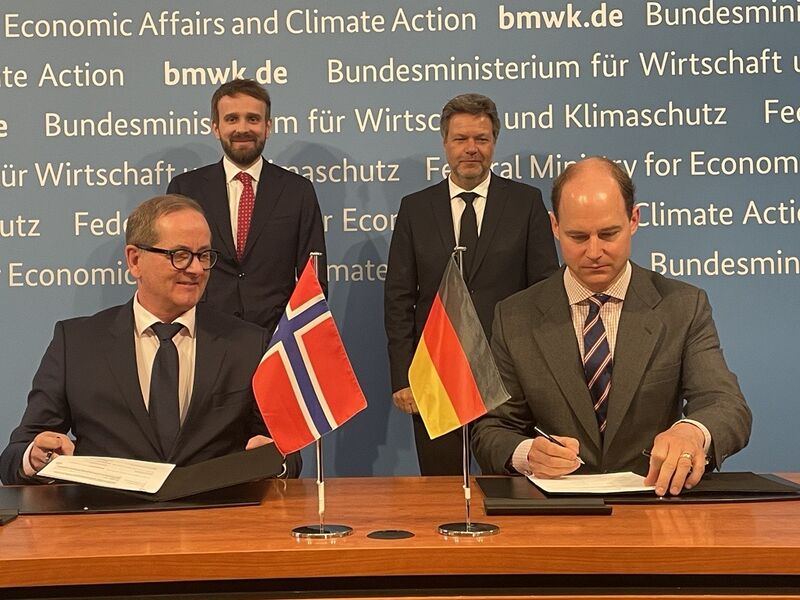Norway/Germany – With the German gas company VNG, Aker Horizons ASA has signed a letter of intent to supply up to 200,000 tonnes of green ammonia annually from Narvik, Northern Norway.
The green ammonia will be transported from Narvik to German terminals, where it will be distributed to clients by VNG as ammonia or hydrogen. The agreement supports Norway’s goal of establishing itself as a significant clean hydrogen supplier to Germany and the EU, promoting new green industrial growth and enhancing European energy security. By 2028, Narvik’s ammonia production capacity is anticipated to be between 1,000 and 1500 tonnes per day.
Hydrogen markets growth
Norway wants to actively participate in the growth of the EU and German hydrogen markets. The nation and Germany confirmed their shared aim to build the necessary infrastructure from Norway to Germany and to provide a large-scale supply of hydrogen by 2030. Germany predicts that by 2030, it will require up to 130 terawatt hours of hydrogen, of which 40 to 75 terawatt hours (TWh) would be produced from green power, or “green hydrogen.”
Green value chains
In Narvik, Aker Horizons is creating green value chains based on cost-effective renewable energy that are combined with midstream goods like hydrogen and downstream goods like green ammonia. Together with partners CapeOmega and Shell, the business is also building a sizable blue hydrogen production facility at Aukra on the Norwegian west coast, with a projected capacity of 2,500 MW or 1,200 tonnes of hydrogen per day by 2030. Gassco, DENA, Aker Horizons, and other industry partners are assessing the viability of building a hydrogen pipeline from Norway to Germany.
Decarbonization
The collaboration between Aker Horizons and VNG advances the decarbonization of challenging industries and moves the hydrogen economy closer to the goals of Germany and the EU. Given that Germany prioritizes its industrial sectors for the use of hydrogen until 2030, purchasing green ammonia from the Narvik project could be a crucial step in accelerating decarbonization in eastern Germany, notably in industry.





